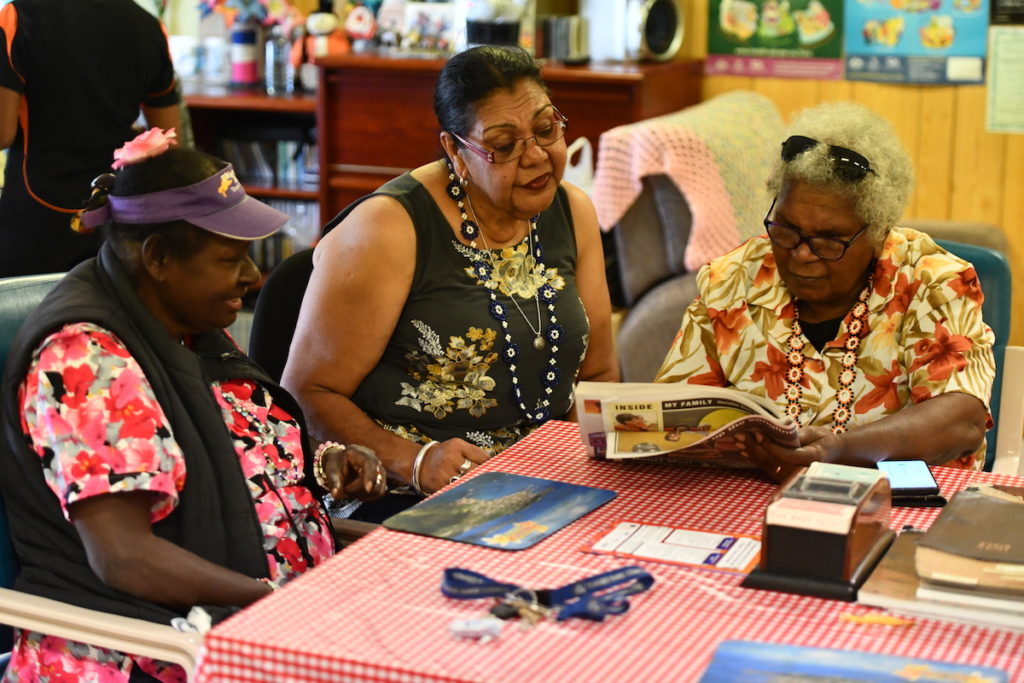2020 must be a turning point, says June Oscar AO, Australia’s Aboriginal and Torres Strait Islander Social Justice Commissioner, on delivering a landmark report today sharing a female-led plan for structural reform.
The report is called Wiyi Yani U Thangani—meaning ‘Women’s Voices’ in Oscar’s language Bunub — Securing Our Rights, Securing Our Future Report 2020.
It calls for a National Action Plan to be established urgently, along with targets and benchmarks for women and girls for leading in all areas of life. It comes following hundreds of engagements with thousands of Aboriginal and Torres Strait Islander women and girls across urban, remote and very remote areas.
“But first and foremost, Wiyi Yani U Thangani belongs to our First Nations women and girls. This is their report,” Oscar said in her speech announcing the report on Thursday, marking Human Rights Day, and offering a plan to reimagine what equality is and how to get there.
“This was intentionally a project without agenda. It was driven by our women and girls, who set the tone and determined the dialogue. The result is a report shaped by their candid and fearless conversations that is not confined to a single sector or someone else’s interpretation of their lives. Like them, the Wiyi Yani U Thangani report is full and expansive in its scope.”
She said the stories of women and girls thread together to deliver five thematic parts of the report. It’s the first time in 34 years that the voices of Aboriginal and Torres Strait Islander women and girls have been elevated into a comprehensive, whole-of-life, national report.
Oscar said the women and girls spoke of the need for systems that recognise and support their holistic realities, which the report aims to reflect by detailing “major areas of our entwined existence from healing and recovery to the practice of Law and culture; the mitigation of climate change; educational journeys and the growth of First Nations-led economies.”
Oscar said that every chapter of Wiyi Yani U Thangani outlines the imposition of Western systems, the structures of colonisation that women and girls have described as trapping them into intergenerational poverty and power.
“These structures that are detached, are unresponsive. They deepen cycles of crisis and punitive interventions and silence our women even when their pain is deafening,” she said.
“Make no mistake, our women are not to blame for this narrow frame of hurt and pain, which barely scratches the surface of their stories. Systems that fail to value and invest in the incredible worth and consequence of our women and girls’ actions are broken. Wiyi Yani U Thangani proves that time and again.
Oscar added that after a year that has highlighed how many Black lives are lost in these broken systems, 2020 must be a turning point.
“First Nations women never stop fighting even when exhausted, driven by their uncompromising pursuit for a society capable of realising basic rights and ideals of equality, inclusiveness and respect.
“Let 2020 be the turning point, where it is recognised that all Australians hold these ideals in common, and when we stand together our fight is shared and can take us toward the future, we all want and deserve. But, to be equals on this journey, we must overcome inequalities and institutional discrimination by guaranteeing our women and girls self-determination. That is the call of our women’s voices, of Wiyi Yani U Thangani.
The report details seven overarching structual reform recommendations, covering a wide range of things such as establishing a First Nations women and girls’ National Action Plan, designing an advisory body and setting ambitious targets and benchmarks across all areas.
Comissioner Oscar said these recommendations will enable women and girls to be the changemakers “who dismantale the structures that silence and reconstruct frameworks that empower.”
“My message to our First Nation women and girls, carried throughout the report, is: dream big, aim high, be ambitious and never stop believing that your actions can remake a society that embraces and celebrates all of who we are. I know we belong to an Australia that can commit to this; that our fellow citizens will walk alongside you in striving to achieve shared ideals, and that they will put in the hard yards to bend the arc towards justice for us all.”
The next stage, already underway, aims to focus on implementing the reports recommendations.
“Australia must, without delay, address the profound disparity experienced by First Nations women and girls,” Oscar told Women’s Agenda.
“I invite all Australians to read this report with an open mind, and an open heart. It is inspiring, humbling, candid and deeply insightful.
“Women and girls have given us their all and now we have a responsibility to respond. Wiyi Yani U Thangani is not a report for the shelf.”
“We are now sharply focused on implementing the report’s recommendations, by engaging with communities and peak bodies, stakeholders and Australian governments.
“So please, read, listen and learn from our women and girls, whose voices sing a call for change.”
You can read the Wiyi Yani U Thangani Report (2020) here.
Pictured above: Mary Ward, June Oscar and Nazareth Adidi at the Thursday Island Home and Community Care Centre. Courtesty of Wayne Quilliam for Australian Human Rights Commission.


